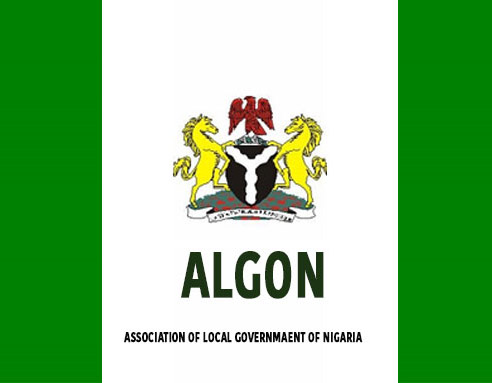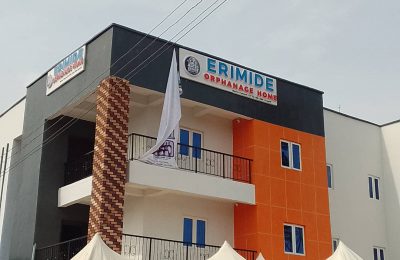

Anxiety is trailing the activities of the Inter-ministerial committee set up by the Federal Government for the implementation of the judgement of the Supreme Court granting financial autonomy to the 774 local governments in the country.
Some leaders of the Association of Local Governments of Nigeria (ALGON), who spoke to the Nigerian Tribune on the condition of anonymity on Sunday, said they are waiting for the inter-ministerial committee to proclaim the template for the implementation.

The setting up of the 10-member committee, with the Secretary to the Government of the Federation (SGF), Senator George Akume, followed the court order that the Federal Account Allocation Committee (FAAC) to henceforth disburse directly funds accruable to the LGAs.
The court also declared that it is unconstitutional for state governors to hold onto funds meant for local government administration.
While the government was silent on the timeframe given to the committee to carry out the assignment, the expectation was that the body would expedite action on the mandate since the Supreme Court had directed the immediate action on the judgement granting financial autonomy to the LGAs.
Some ALGON chairmen, told the Nigerian Tribune that members of the body are concerned about the seeming delay by the inter-ministerial committee in completing its assignment so that the judgement can run its full course.
The chieftains said they have put the necessary machinery in place to organise a press briefing once the committee unveils its recommendation.
A member of the ALGON national executive stated: “We are anxiously waiting for the report of the presidential committee on how the judgement of the Supreme Court judgment granting financial autonomy to local governments will be implemented. We do not want to preempt the recommendation of the inter-ministerial committee on the national assignment. Once released, we plan to hold a media briefing to dissect the recommendations and take a position,”
Initial reports had suggested that the implementation would commence early October as state governments made frantic moves to organise local council elections in order have democratically elected executives at the LG level.
Kaduna, Rivers, Bauchi, Benue, Imo, Kwara, Plateau, Enugu, Abia, Ebonyi, Kebbi, Sokoto and Akwa Ibom are among states that have joined others that had elected chairmen and councilors piloting the affairs of their LGAs before the judgement was delivered on July 11.
Katsina, Ogun, Osun and Anambra are in the list of states that are also in the process of organising local council elections.
Members of the Inter-Ministerial Committee was inaugurated on August 24 to enforce the judgement include the SGF, Senator George Akume as chairman; Minister of Finance & Coordinating Minister of the Economy; Attorney General of the Federation & Minister of Justice; Minister of Budget & Economic Planning; Accountant General of the Federation; Governor, Central Bank of Nigeria; Permanent Secretary (Federal Ministry of Finance); Chairman, Revenue Mobilization Allocation & Fiscal Commission representative of state governors and a representative of Local Governments
The primary assignment of the committee, according to the office of the SGF, is to ensure that local governments are granted full autonomy, allowing them to function effectively without interference from state governments.
It added that the action is in line with the efforts of President Bola Tinubus to give appropriate implementation to the provisions of the Constitution, which recognises local governments as the third tier of government.
The Federal Government, through the Attorney General of the Federation (AGF) and Minister of Justice, Prince Lateef Fagbemi (SAN) had dragged the 36 states the court over alleged retention, conversion and misuse of funds allocated to the LGAs because the funds were usually paid into a joint account belonging to the states and LGAs.
Based on the grounds submitted by the federal authorities and attached evidence, the court, in its judgement, declared that it is unconstitutional for state governors to hold onto funds meant for local government administrations.
Recently, the AGF called on attorneys general in the country to advise their various state governors to obey the judgment of the Supreme Court on the financial autonomy for LGAs in Nigeria.
Fagbemi, at a function in Abuja, also warned local government chairmen to make judicious use of monies allocated to them because they and not the governors of their respective states would be held accountable.
Assuring that the move by the Federal Government was to ensure that funds are available for grassroots development henceforth, the AGF explained that it would be easier to handle the LGAs because the chairmen, unlike the governors, do not have immunity.
“It is very easy to put them where they belong when the need arises,” Fagbemi stated.
He warned LGA chairmen: “If a governor asks you to commit a crime, he will not follow you to Kuje,” just as he urged anti-corruption agencies not to hesitate in arresting and prosecuting local council chairmen, who may divert public funds meant for their council to other ventures.
The Nasarawa state Attorney General and Commissioner for Justice, Mr Labaran Shuaibu Magaji, while reacting to the judgement had said, the position of the state government was in line with that of the Federal Government.
AG said the state government does not tamper with the finances of the local government areas in the state and that it already has democratically elected local government councils.
“As for compliance, we are in total compliance with the judgement of the Supreme Court which granted financial autonomy to the local government administration,” he said.
In his own comment, Professor of law and rights activist, Professor Mike Ozekhome (SAN) said the judgement would abolish the old practices of State – Local Government Joint Account.
He added that the judgement is enforceable in all parts of the country as there was no ambiguity in it to warrant any delay in its implementation.
Ozekhome maintained that section 162 of the 1999 Constitution, upon which the judgment was predicated, was rightly interpreted by the seven-member panel of Justices of the apex court, adding that the judgment of the Supreme Court is superior to the provisions of the Nigerian Constitution.
“A law is only what the courts interpret it to be, not what it says on bare paper. In other words, the law, whether constitutional, substantive, statutory, or adjectival, remains what it is-inanimate and dead on paper-until the life and the oxygen of interpretation are breathed into it by a court of law.
“Consequently, it is thus the interpretation which was given by the Supreme Court to the entire section 162 of the Constitution on the sharing procedure between the Federal government, states and the LGAs, and not the bare provisions of the Constitution that prevails.
“On the enforceable of the judgment, the answer is also in the affirmative. Section 287 (1) of the 1999 Constitution comes to our rescue by providing that, the decisions of the Supreme Court shall be enforced in any part of the Federation by all authorities and persons and by courts of subordinate jurisdiction to that of the Supreme Court.
“Even if the Supreme Court was wrong in its interpretation of section 162 dealing with the State Joint Local Government Account, the judgement remains binding on all and for all times.
“It is only an amendment of the Constitution under section 9 thereof that can override the decision. No person or authority can decide, whimsically and arbitrarily to disobey the judgement or pick and choose what portions of the judgment to obey or which to discard.
“Since no court is higher than the Supreme Court of Nigeria, only an amendment to the Constitution by the National Assembly (NASS) under section 9 can override the judgment.
“On how the Supreme Court judgment is implementable, the answer is equally simple. The FG, states and LGAs should now meet (and I am told they have been meeting) at FAAC and decide on modalities and procedures of opening up accounts for LGAs so that their allocation under section 162 is paid directly to them and not to the joint state, LG account that is oftentimes waylaid by state governors and fleeced without the helpless and hamstrung LGs being able to raise a finger.
“This is not rocket science. That refusal by state governors to remit to the LGs was the ugly mischief the Apex Court judgment sought to cure; and it did so perfectly, loud and clear, in my own humble opinion.
“Inter alia, the Apex Court had declared emphatically that, “by virtue of section 162(3) and (5) of the Constitution of Nigeria, 1999, the amount standing to the credit of LGs in the Federation Account shall be distributed to them and be paid directly to them”; that “a state, either by itself or Governor or other agencies, has no power to keep, control, manage, or disburse in any manner, allocations from the Federation Account to LGs.
“The Apex Court also granted injunctive orders restraining “Governors and their agents, officials or privies from tampering with funds meant for the LGs in the Federation Account” and further ordered “immediate compliance by the states, through their appointed officials and public officers with the terms of the judgment and orders,” Ozekhome noted.
He said the content, terms and directives contained in the judgement are straight forward, unambiguous and are as clear and clean as a whistle and, all parties concerned, FG, states and LGs- must obey and enforce the judgement immediately.
Speaking on the issue, another Senior Advocate of Nigeria (SAN), Dr Alex Izinyon, called on the National Assembly to make enabling laws to give adequate effect to the judgement, accusing the legislative arm of government of failing to live up to expectations despite Supreme Court’s efforts to ensure that the right thing is done in LG administration in the country.
He said the apex court “constitutionally remains the final court of the land; they are final in all ramifications of finality in any dispute that are brought before it.
“The Supreme Court, as a court of law and policy, over time even though final, has taken into consideration social, economic and political factors or called it the reality of time in arriving at certain decisions as a policy court. These are decisions that have a larger touch on the society as a whole, like the Nigerian citizens as a whole,” he said.
He noted: “The Constitution makes provision for 774 LGAs and they are expected to be autonomous. It is no longer news that apart from the few State Governors who had kept to this autonomous nature of the Local Government, others have swallowed them up as part of their departments and in most cases dissolved the democratically elected Local Government Area Councils and appointed caretaker committees.
“Have we forgotten so soon that apart from some few States, no election has been held in many of the LGAs, but run by Caretaker Committees in Nigeria for over 10 years”, he said and cited the case involving A-G Lagos state Vs A-G Federation, where despite the clear provision of Schedule 1 of the 1999 Constitution which listed out 20 Local Government Areas for Lagos State, the then Governor of Lagos State created additional Local Government Areas which prompted the then President to withhold the entire Lagos State allocation, which included the Constitutionally 20 Local Government Councils and the additional created Area Councils?
“The Supreme Court in that case, as a policy Court held that the President had no power to withhold the State allocation or suspend it and that the State was entitled to the said allocation to be so released but tied to the 20 Local Government Councils created by the Constitution and not the additional Local Government Areas created”.
He said the courts have never hidden their disdain for the unconstitutional acts of the governors dissolving democratically elected LG chairmen and appointing caretaker committees in their stead.
The learned silk said the governors have failed to heed to the numerous pronouncements by the apex court, despite their respective states being manned by attorneys general and commissioners of Justice and added that, the National Assembly has failed to play its role effectively, despite the many judgements of the Supreme Court on the issue.
“In all these years, where is the National Assembly after the Supreme Court decision in A-G Lagos Vs A-G Federation (Supra) to correct by legislation or amendment that the joint account referred to, are for the State and the Local Government Areas, created by Schedule 1 of the 1999 Constitution.
“Despite the pronouncements of the Supreme Court on the unconstitutionality of the governors sacking duly elected Local Government Chairmen and their Counselors in the cases just cited over these years, has the National Assembly risen to the challenge urgently to remedy this situation? They did not and may never.”
He said the Supreme Court has always risen to the task when it involves policy as a policy court, to make decision in the interest of justice by adopting a more purposive approach in the interpretation of any provision of the law, especially the Constitution.
“What is left is for the National Assembly to proceed with the enabling legislation to give teeth to this profound decision and make other adequate safeguards by legislation to ensure proper accountability and the relevant authorities to beam their searchlight in case the Local Government Councils fall short of this golden opportunity,” he said.
Efforts to get the time-line for the implementation of the judgement and the level of compliance by state governments from the office of the AGF and Minister of Justice did not yield any positive results as the spokesman to the Minister, Kamarudeen Ogundele, referred the Nigerian Tribune to the SGF.
President Bola Tinubu had, in his broadcast to celebrate Nigeria’s 64th Independence Anniversary on October 1, assured that the federal government would implement the judgment of the Supreme Court which granted financial autonomy to the 774 local government areas in the country as part of the measures to promote political economy.
“As part of our efforts to re-engineer our political economy, we are resolute in our determination to implement the Supreme Court judgment on the financial autonomy of local governments,” the president stated.
READ ALSO: Why we rejected IPPIS — ASUU








